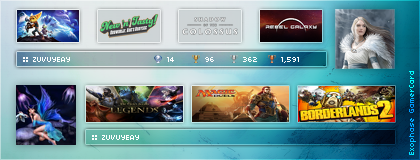Squilliam said:
famousringo said:
4. Oh, well, I had my doubts, but they've all been whisked away by the personal assurance of Anonymous Internet Forum Dude who totally knows the Xbox 360 is profitable but isn't quite sure where Xbox Live revenues fall.
|
You started this chain of debate by saying that the Xbox 360 was not profitable. Where is your proof that the actual console itself is unprofitable? The point is that the data is deliberately obfusicated so that you cannot easily tell what is causing the profit and loss situation. The information that Microsoft has given indicates that the Xbox 360 is a significant proportion of revenue moreso than costs in the structure of the EDD when you do the math on 'the Xbox 360 revenue increased by X% in Y$ vs A% and B$ costs'.
|
Microsoft stated this when, exactly? I certainly agree that the last few years have been good for the 360, 2011 in particular, but you can't just magic away the deficits it incurred early in life and proclaim it a good investment from 2008 onward.
I draw conclusions based on the best data I have available, and that information suggests that, over it's life, the 360 has operated at best around break-even.
If Microsoft wants to prove me wrong, they can make a public statement that they've earned a good profit on all the money they've invested in the 360 over the course of this generation and I'll believe them. But they won't. They'll boast of revenues, of units sold in the US, of Xbox Live subscriptions... anything but the bottom line. Those are the kind of metrics companies brag about when they can't brag about profits. Why should I give the 360 the benefit of the doubt when, as you note, Microsoft is deliberately obfuscating numbers to exploit doubt?

























































